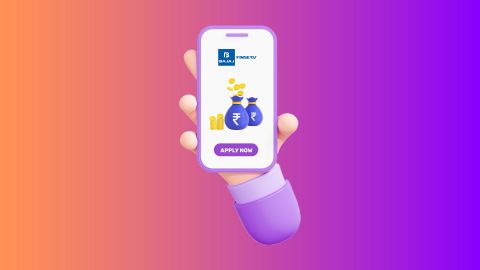How a financial institution determines how much loan to give you continues to be a subject of mystery. You have a requirement for Rs. 5 lakh but end up getting Rs. 3 lakh. Someone else may need a personal loan of Rs. 2 lakh but gets an offer of Rs. 10 lakh. We have tried to demystify this world for you and also introduce you to a few factors that you will need to keep a track of in order to enjoy higher loan amount sanctions.
Demographic details
A range of demographic details go into calculating your loan eligibility and amount.
- Age: Most financial institutions lend to individuals who are between 20 and 70 years of age. For us, the range is 21 to 80 years.
- Monthly income: As a matter of fact, the higher your monthly income, the higher will be your sanctioned loan amount. However, this comes with a condition. If you already have many loans running, your sanctioned loan amount may be low. In some cases, you may not even be offered a loan unless you close one of the previous loans.
- City of residence: Your loan amount could vary from city to city. The reason for this is that in most cases, the salaries in larger cities are more than those in small towns.
- Monthly expenses and loan repayments: While calculating your loan eligibility, the financial institution looks at the total monthly outflow (monthly expenses, bills, ongoing loan EMIs, and other fixed recurring expenses). This gives an idea of how much money is already committed and cannot be used to repay an additional instalment. This ratio is referred to as the debt-to-income ratio. The lower the ratio, higher the sanctioned loan amount and vice versa.
- Credit score: Your credit score is the single-most important factor for the lender. Your credit score is maintained by multiple institutions called credit bureaus (TransUnion CIBIL, Experian, etc.), who keep a track of all your loans and cards as well as the repayment history. A higher credit score not only improves the probability of you getting a loan but also a higher sanctioned amount. We have a CIBIL score threshold of 650 or higher for our loan applicants. The reason we have kept this relatively higher is to ensure that we offer higher loan amounts.
- Repayment history: Paying your ongoing EMIs on time is a healthy practice and shows your financial discipline. Every time you pay your EMI on time, your credit score is impacted positively. Every time you miss an EMI, you lose certain points from your credit score. That’s why, Har time EMI on time.
On our site, we have a host of useful tools that you can use to find out your loan eligibility, check your credit score, find out the minimum salary cut-off applicable for your city or use our calculator to check out various combinations of loan amounts and EMIs.




